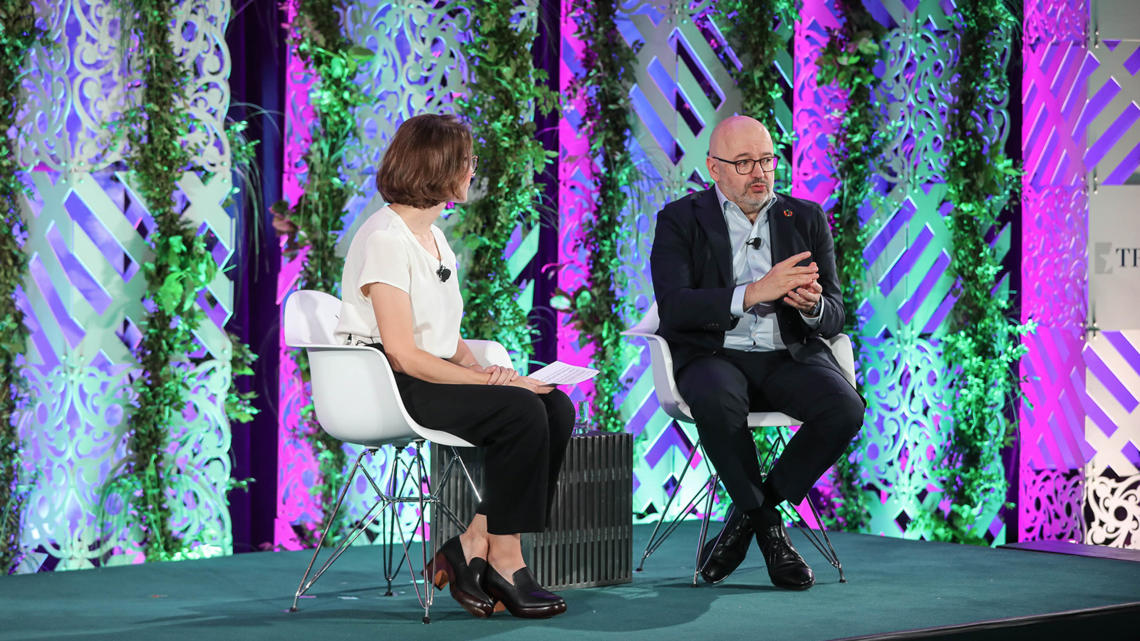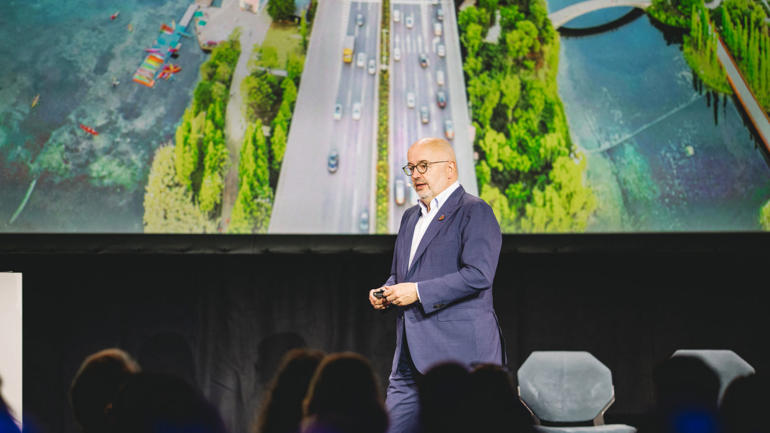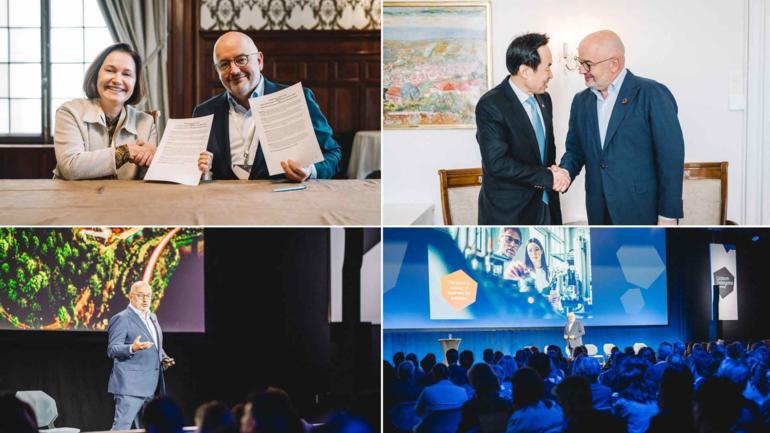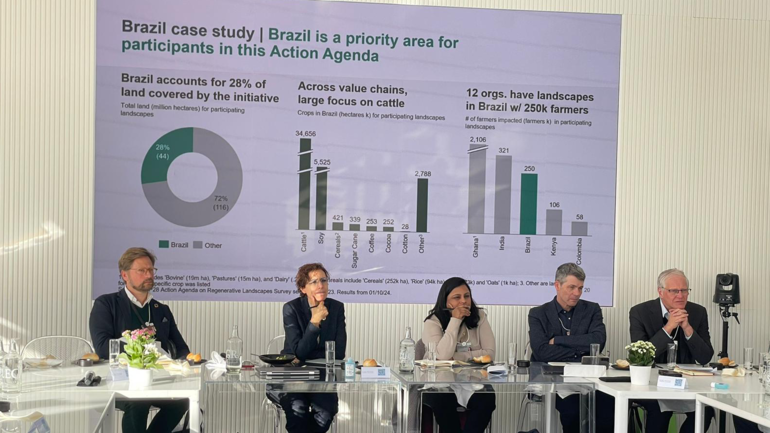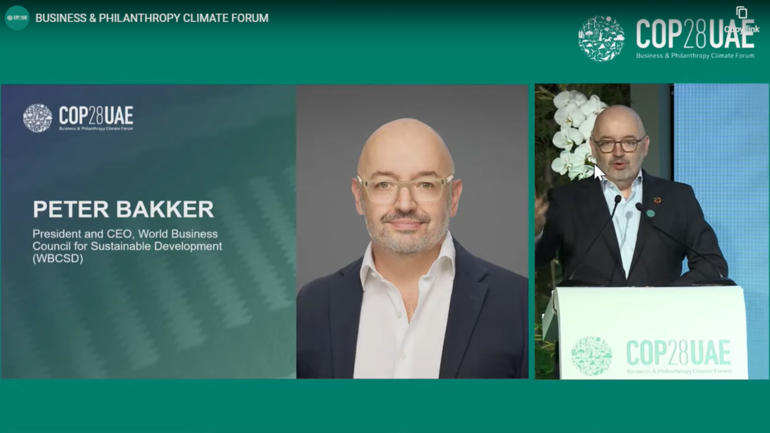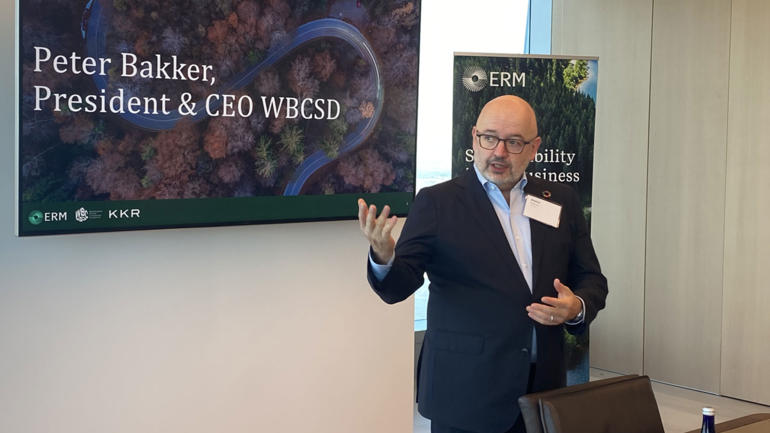Less than two weeks after attending COP27 in Egypt, I participated in Fortune Magazine’s Impact Initiative in Atlanta, United States. Fortune brought together leaders from businesses, nonprofits, and academia to share insights and expertise to collectively address the associated risks and growth opportunities with environmental, social, and governance (ESG)-related issues.
I shared the essence of what I took away from COP27: we’re building a system for which companies will need to set science-based net-zero targets. Over 8,500 of the largest global companies have made commitments, but only 15% of those have transition plans, and of that 15%, only 7% are on track to deliver these by 2030. Commitments are fine, but we need to reach a point where companies will be asked to disclose and carefully track their progress. There really is no time to waste. We must move forward toward limiting global warming to 1.5°C.
Accountability is now at the forefront and companies need to be ready.
Actions by standards boards and government must use climate-related scenario analysis to report on climate resilience and to identify climate-related risks and opportunities, as recommended by The Task Force on Climate-related Financial Disclosures (TCFD). In the US, the Securities and Exchange Commission (SEC) is expected to soon announce rules that would require companies to report their resilience to climate risks in more detail. Last month, we ourselves launched a new Climate Scenario Tool, which includes the first-ever climate scenarios designed specifically for the Food, Agriculture, and Forest Products sectors. This helps companies develop transition plans to align with a low-carbon future. Following in the footsteps of the TCFD, the WBCSD also launched its Taskforce for Nature-related Financial Disclosures (TNFD), emerging as the framework to enable business to meet the growing expectation to disclose nature-related risks and opportunities and ensure finance flows to nature-positive outcomes.
These actions, plus a strong interest from capital market firms to better understand climate risk exposures, will make it inevitable for leading companies to be held accountable for the progress toward a net-zero world. It is time for companies to close the gap between intent and execution. Any company that sets a net-zero target without a transition plan toward implementation can no longer be seen as having a credible target. Caroline Roan, Chief Sustainability Officer and Senior Vice President for global health and social impact at Pfizer, championed this idea during a roundtable on leadership in action, namely that “people need to feel assured that when we say we’re doing something that we’re actually doing it, and they can track that over time’’. Likewise, any transition plan without transparent disclosures on the progress toward the target soon will no longer be accepted by financial markets.
The interconnected issues of climate, loss of nature, and growing inequality cuts across various environmental, social, and governance issues (ESG). No business can thrive unless the three are tackled simultaneously. COVID demonstrated how the three are connected and their level of impact. Yet, suppose we are to expect companies to be accountable. In that case, we need consistent data and a common language to fully engage capital markets to redefine value in a manner that ensures they reward the most sustainable companies with a lower cost of capital, recognizing the value of financial, environmental, social, and governance performance.
While more companies today are engaged in social issues, we are just beginning to understand how best to measure and quantify the impact. However, we must do everything we can to minimize the time necessary to get there. As Kathleen McLaughlin, Executive Vice President, and Chief Sustainability Officer at Walmart said: “’With social issues, there tend to be many different views about what good looks like versus something like climate, where we can agree on how to measure a ton of emissions and it is what it is.”
At the summit, I spoke on the plenary stage about the new breed of business leadership needed to drive the type of systems transformation required to meet a 1.5°C world. Systems thinking will drive business leaders to be bold and humble: confident that we can disrupt and transform systems to deliver a more sustainable world, yet clear-eyed about the collaborations on which progress will depend. Systems transformation will change every aspect of our lives, from the type of energy we use, how we transport ourselves and how and what we grow to feed the world.
To do this, business leaders must commit to a mindset shift that drives ESG strategy in a way that fosters:
- Resilience to strengthen supply chains
- Regeneration to continually drive innovation
- The reinvention of capitalism
Each of these three mindset shifts is equally critical.
I left the US with a better appreciation of the ESG attacks being waged in the country. The external backlash against the terms “ESG” and “DEI” is real, palpable, and increasing. But I am also more optimistic. The recent elections in the US strengthened democratic institutions. Young people voted in higher numbers than expected and for candidates, they thought would best address climate and growing inequality. Additionally, the climate provisions contained in the Administration’s Inflation Reduction Act have begun to spur economic growth in areas of the country that are at risk of being left behind.
If we do this right, we will create profitable solutions for the societal problems facing people and the planet. And when we do, we will achieve that by 2050 9+ billion live well within planetary boundaries.

